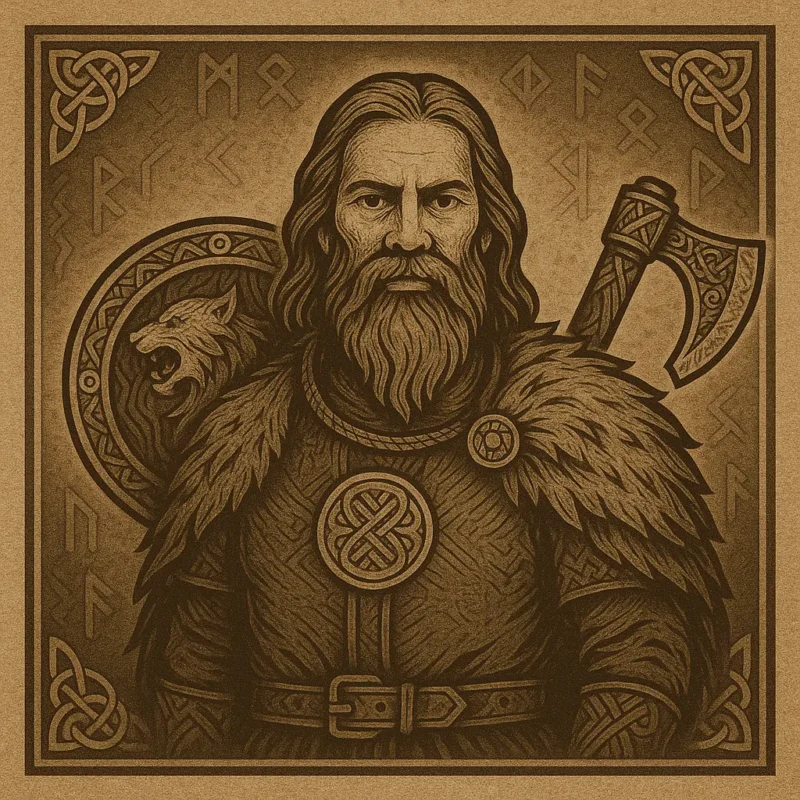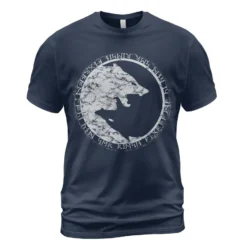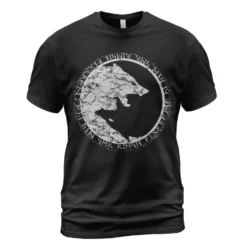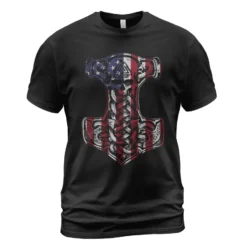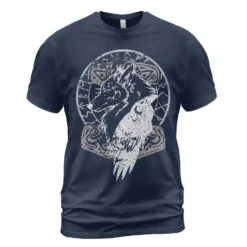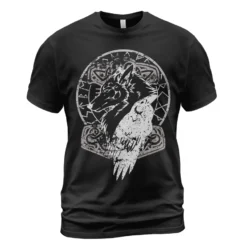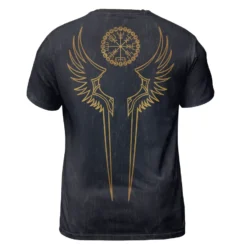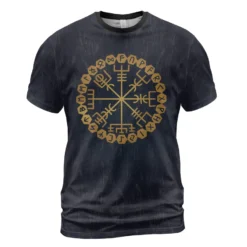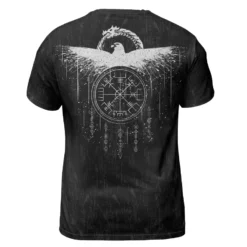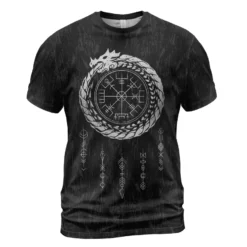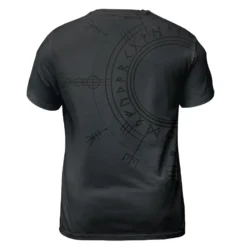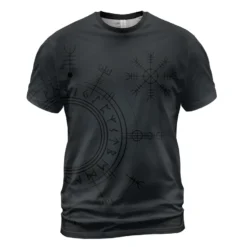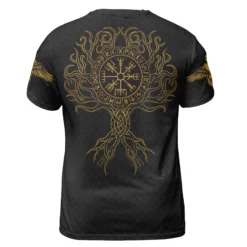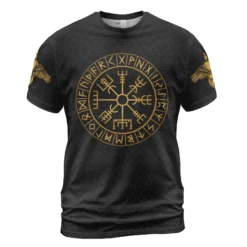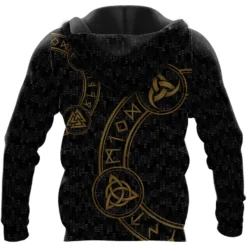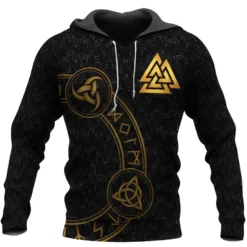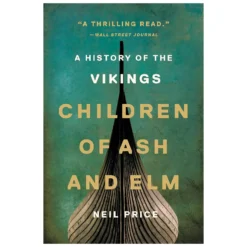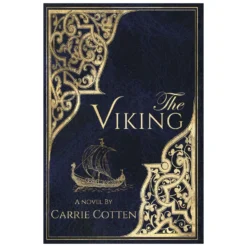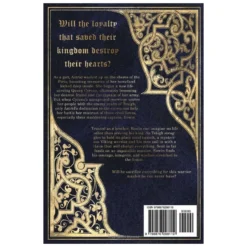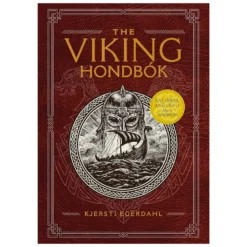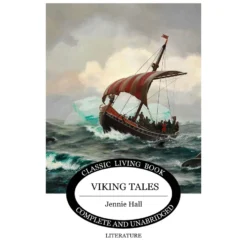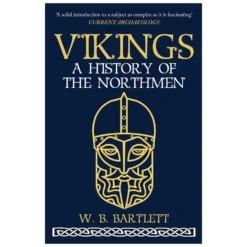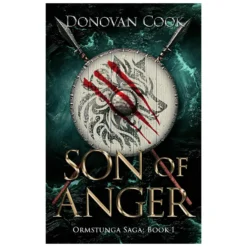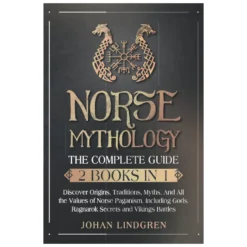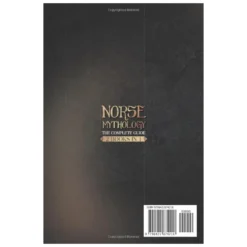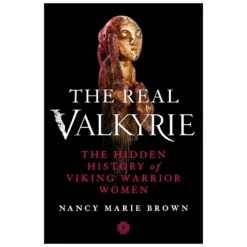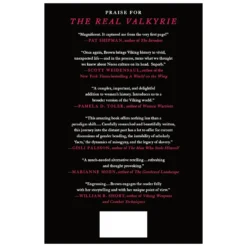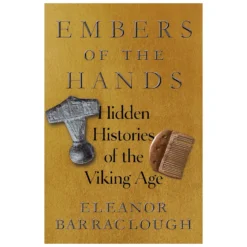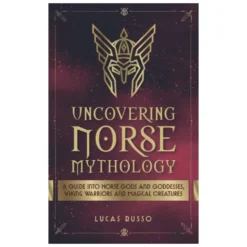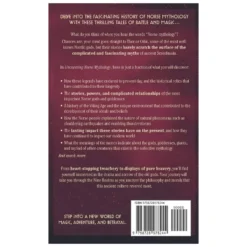Viking Blog
Viking Family Names: 10 Powerful Surnames Echoing Norse Legends
People know the Vikings as brave explorers, warriors, and traders. They made a lasting impact on Europe and beyond. The battlefield shaped their identity, and their names also kept it alive. Viking family names had meaning. They connected people to their ancestry, gods, and legends.
Norse people used patronymics instead of modern surnames. This system named children as the son or daughter of their father. For example, Leif Eriksson was “Leif, son of Erik.” Over time, many of these evolved into lasting names that still resonate today. Below are ten powerful Viking family names echoing from Norse history and mythology.
Ragnarsson – Sons of Ragnar
Among the most legendary Viking family names is “Ragnarsson,” meaning “son of Ragnar.” It brings to mind Ragnar Lothbrok, the legendary warrior. His sons—Björn Ironside, Ivar the Boneless, and Sigurd Snake-in-the-Eye—became known as feared leaders across Europe.
This name reflects power, legacy, and a bloodline that inspired saga after saga.
Eriksson – Sons of Erik
“Eriksson” means “son of Erik,” one of the most common names in the Viking Age. The most famous bearer was Leif Eriksson. He is famous for reaching Vinland, now part of North America, long before Columbus did.
The name reflects Viking identity through its spirit of exploration and discovery.
Haraldsson – Sons of Harald
Kings and chieftains often passed their names on through patronymics. “Haraldsson” recalls Harald Fairhair, the first king of a unified Norway. His descendants spread his name across Scandinavia.
This family name symbolizes authority and royal ambition.
Olafsson – Sons of Olaf
“Olafsson” was another strong surname, tied to the popular Norse name Olaf. Kings like Olaf Tryggvason and St. Olaf (Olaf Haraldsson) made this name famous in history and legend.
The name mixes warrior strength with spiritual history. Olaf Haraldsson later became Norway’s patron saint.
Thorsson – Sons of Thor
Some Viking family names drew from gods rather than kings. “Thorsson” means “son of Thor,” the thunder god. Families using this name likely sought the strength, protection, and courage that Thor embodied.
It connected bloodlines to divine power in a direct manner.
Freysson – Sons of Freyr
“Freysson” derives from Freyr, the Norse god of fertility, prosperity, and peace. A family name like this meant divine favor, enough, and leadership.
It was less about war and more about prosperity—yet still a powerful mark of identity.
Sigurdsson – Sons of Sigurd
Sigurd was one of the most heroic figures in Norse legend, the dragon-slayer of the Volsunga Saga. “Sigurdsson” means “son of Sigurd.” It embodies courage and mythical adventure.
This family name connects ordinary warriors to one of the greatest sagas of the North.
Knutsson – Sons of Knut
“Knutsson” recalls King Cnut the Great, ruler of England, Denmark, and Norway in the 11th century. His dynasty turned the Vikings from raiders into rulers of kingdoms.
The name symbolizes political power and cultural influence across Europe.
Björnsson – Sons of Björn
“Björnsson” means “son of Björn,” with Björn translating to “bear.” This powerful animal symbol made it a common and respected family name. Björn Ironside, son of Ragnar, gave this surname legendary weight.
It reflected strength, resilience, and warrior ferocity.
Gudmundsson – Sons of Gudmund
“Gudmundsson” means “son of Gudmund.” It may not be as well-known, but it holds the same importance. The name “Gudmund” comes from Old Norse and means “protection of the gods.”
Families carrying this name align themselves with divine guardianship and spiritual authority.
Why Viking Family Names Still Matter
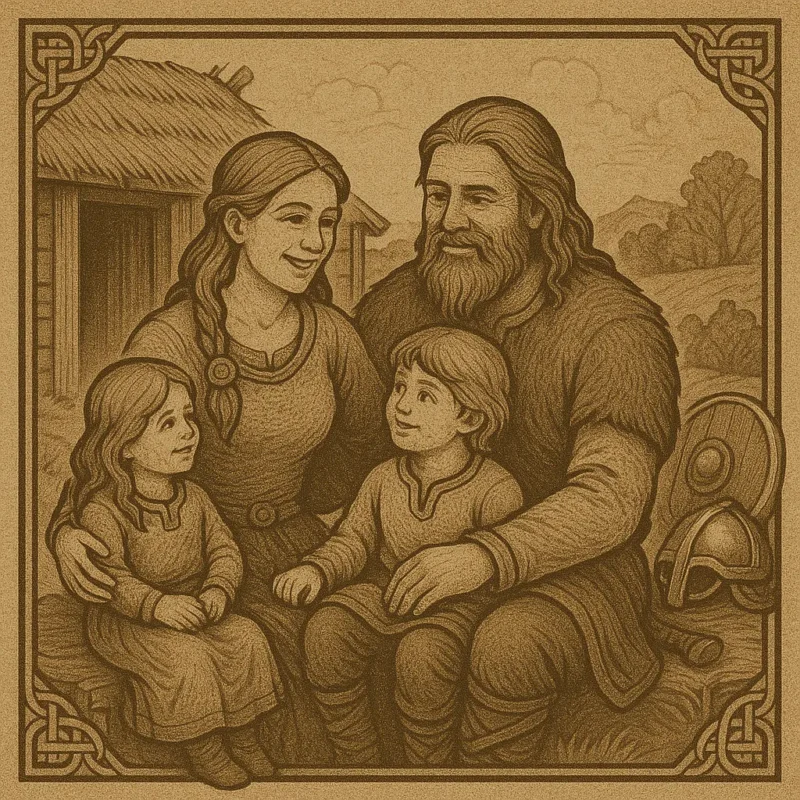
These Viking family names were more than identifiers; they carried cultural weight. They shared tales of ancestry. These stories linked families to gods and heroes, keeping legacies alive through generations. Viking names came from kings like Harald and Olaf, gods like Thor and Freyr, or heroes like Sigurd. Viking society highlighted key values like bravery, honor, exploration, and a tie to the divine.
Many of these surnames still exist in Scandinavian countries. Others show up in literature, films, and modern naming traditions. They are a living reminder that names are not labels—they are echoes of history.
Conclusion – Echoes of Norse Legends
The power of Viking family names lies in their ability to bridge the past and present. Each name—whether Ragnarsson, Eriksson, or Thorsson—carries a story. They remind us that a family rooted every Viking raid, kingdom, or saga. Each family had a name intended to last.
These names are strong symbols of Norse identity. They show that, even after centuries, Viking legends still echo today.

